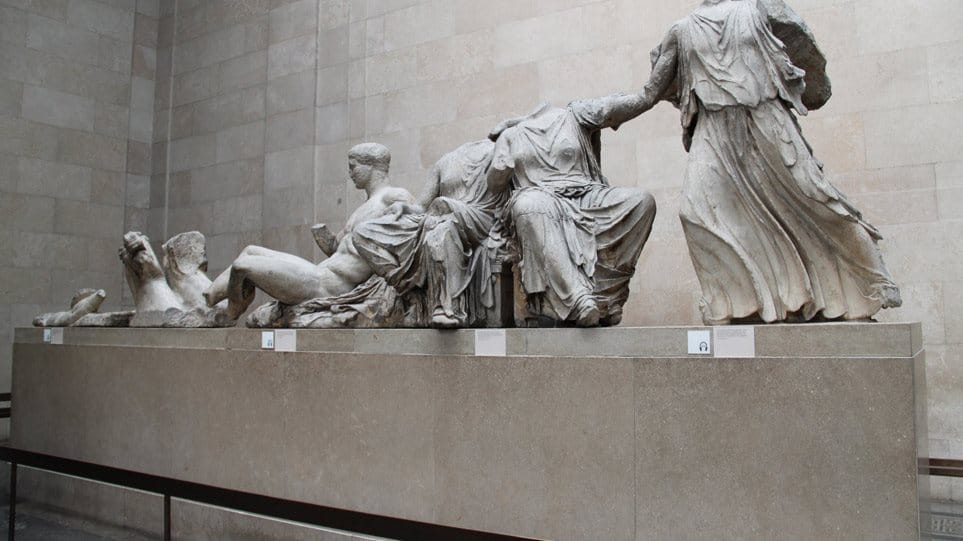Greece again calls for the return of the Parthenon Sculptures
by GCT
On the occasion of World Culture Day last week, Greek Culture Minister Lina Mendoni reiterated that the British Museum should return the stolen Parthenon Sculptures, a plea that has fallen on deaf ears for generations.
“Without the supreme symbol of culture, the Parthenon, Western civilisation cannot exist and this symbol deserves to be reunited with its expatriate sculptures,” Mendoni said on STAR TV.
The 2,500-year-old marble sculptures have been the subject of dispute for over three decades, with Greece and the international community repeatedly calling on the British Museum to return them to their place of origin.
“The Parthenon Sculptures are a product of theft and therefore, Greece will never recognise ownership and possession by the British Museum,” she added.
The sculptures were ‘violently’ and illegally removed from the Parthenon by Lord Elgin in the 1800s and sold to the British Museum.
“It is time for the British Museum to reconsider its stance ahead of the Acropolis Museum’s next birthday, which is on June 20… Does it want to be a museum that meets and will continue to meet modern requirements and speak to the soul of the people, or will it remain a colonial museum which intends to hold treasures of world cultural heritage that do not belong to it?” she continued.
According to statistics compiled by committees around the world, Mendoni noted that international public opinion is now unreservedly in favour of the return of the Parthenon Sculptures to Athens.
UNESCO itself strongly supports the need to resolve the issue by returning the sculptures through negotiations between the two sides.
The last survey on the issue of the restitution of the Parthenon Sculptures was conducted by the UK government in 2018 with 2658 adults surveyed. The survey found that 56% of respondents believed they should be returned to Greece, with 20% objecting to their return and a surprising 24% responding they “don’t know.”
Spread the love
- 329
- 13
- 342
Shares